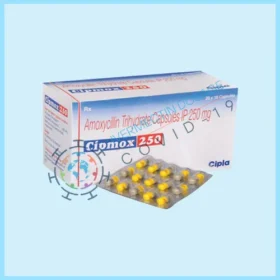- Your cart is empty
- Continue Shopping
- 1
- 2
What Are Antibiotics?
Antibiotics are powerful medicines used to fight bacterial infections. They either kill bacteria directly or prevent them from growing and reproducing. First discovered in the 1920s with Alexander Fleming’s breakthrough in penicillin, antibiotics have since revolutionized modern medicine. They are essential in treating everything from minor infections to life-threatening diseases.
How Do Antibiotics Work?
Antibiotics work by targeting specific functions or structures in bacterial cells. There are two main types:
-
Bactericidal antibiotics – These kill bacteria by destroying their cell walls or disrupting vital processes. Examples include penicillin and cephalosporins.
-
Bacteriostatic antibiotics – These stop bacteria from multiplying, giving the immune system time to eliminate them. Examples include tetracyclines and macrolides.
Importantly, antibiotics are only effective against bacteria. They do not work against viruses such as the common cold, flu, or COVID-19.
Common Types of Antibiotics
-
Penicillins – Used for infections like strep throat, ear infections, and some skin infections.
-
Cephalosporins – Treat a broad range of infections; often used for respiratory or urinary tract infections.
-
Macrolides – Commonly used for lung and sinus infections.
-
Fluoroquinolones – Often prescribed for more serious infections or when other antibiotics fail.
-
Tetracyclines – Used for acne, respiratory infections, and Lyme disease.
When Are Antibiotics Needed?
Doctors prescribe antibiotics for infections caused by bacteria, such as:
-
Strep throat
-
Urinary tract infections (UTIs)
-
Bacterial pneumonia
-
Skin infections
-
Certain types of food poisoning
They are not needed for viral illnesses like colds, flu, most sore throats, or bronchitis.
Antibiotic Resistance – A Growing Threat
One of the biggest challenges in healthcare today is antibiotic resistance. This occurs when bacteria mutate and develop the ability to survive the drugs meant to kill them. Misuse and overuse of antibiotics—such as not completing a prescribed course or using them without a prescription—contribute heavily to resistance.
Consequences of antibiotic resistance include:
-
Longer illness durations
-
More severe infections
-
Increased medical costs
-
Higher risk of death
To combat this, global health organizations urge the public and healthcare professionals to use antibiotics responsibly.
Safe Use of Antibiotics
To ensure antibiotics remain effective, follow these guidelines:
-
Use only when prescribed by a qualified healthcare provider.
-
Do not demand antibiotics for viral infections.
-
Complete the full course even if symptoms improve early.
-
Never share antibiotics with others.
-
Store them properly and discard leftovers safely.
Conclusion
Antibiotics are life-saving drugs that have transformed medicine and saved millions of lives. However, their power must be used wisely. Misuse can lead to resistance, making once-treatable infections harder or impossible to cure. Always follow your doctor’s advice when using antibiotics and help preserve their effectiveness for future generations.















